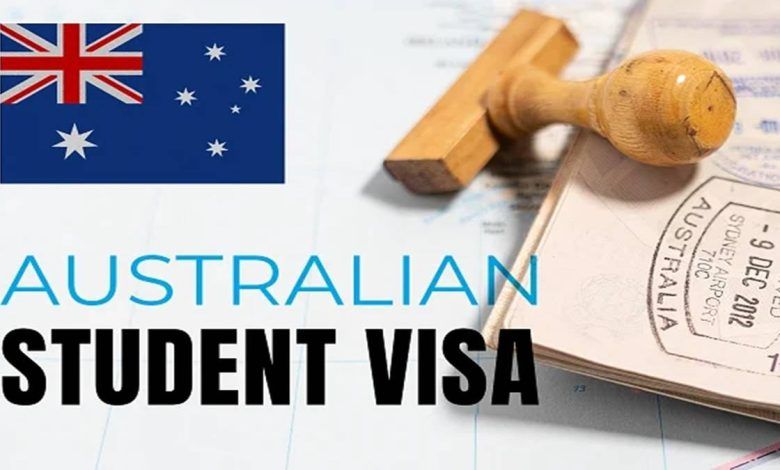Business
Australia Raises International Student Visa Fees by 225% to Manage Migration

Australia has raised student visa application fees from $710 to $1,600, effective July 1, 2024. This 225% increase makes Australia the most expensive country for student visa applications, surpassing costs in the United States (approximately US$185) and Canada (C$150 or US$110).
Government Strategy
This fee hike is part of Australia’s strategy to manage high migration levels that have put pressure on the housing market. Despite international education contributing $36.4 billion to the economy in 2022-2023, the government is implementing measures to balance the influx of international students with the country’s capacity to accommodate them.
Key Changes
- Visa Fee Increase:
- Student visa fee: $1,600
- Additional charges for accompanying family members: $1,445 for each person aged 18 and over, and $390 for those under 18.
- Restrictions on Onshore Applications:
- Visitor visa holders and students on temporary graduate visas are now prohibited from applying for student visas while in Australia.
- Increased Funding Requirements:
- International students must now demonstrate funds of at least $29,710, up from $24,505. This is about $5,000 higher than what is required for a Canadian study permit application and aligns with 75% of Australia’s national minimum wage.
- Tightening Visa Regulations:
- Measures have been introduced to close loopholes that allowed international students to overstay their visas. This move addresses the significant rise in students on second or subsequent student visas, which exceeded 150,000 in the 2022-2023 period.
Government’s Perspective
Clare O’Neil, the Australian Minister for Home Affairs and Cyber Security, stated that these changes are intended to restore integrity to the international education system and create a more manageable migration framework. The new measures aim to ensure that the benefits of international education are balanced with the country’s capacity to handle high immigration levels.
Impact and Monitoring
The impact of these changes on the international student market and Australia’s economy will be closely monitored. The government’s actions are designed to sustain the benefits of international education while maintaining a fair and sustainable migration system.
Business
US TikTok Users Migrate to RedNote as Ban Deadline Approaches

With a potential TikTok ban looming in the United States, many of the app’s 170 million American users are flocking to the Chinese platform RedNote. Dubbed “TikTok refugees,” these users have propelled RedNote to the top spot on Apple’s US App Store as of Monday.
RedNote, known in China as Xiaohongshu or “Little Red Book,” boasts approximately 300 million monthly users and combines features similar to TikTok and Instagram. It is particularly popular among young urban women in China, Taiwan, and other Mandarin-speaking regions, offering a platform for exchanging lifestyle tips on topics ranging from fashion to relationships.
The app’s growing popularity comes as the U.S. Supreme Court prepares to decide on a law requiring TikTok to sell its U.S. operations by January 19 or face a ban. TikTok has refused to sell, arguing that such a move would violate the free speech rights of its users.
RedNote has embraced its influx of U.S. users, with 63,000 posts tagged “TikTok refugee” providing guidance on navigating the platform and learning basic Chinese phrases. One U.S. user humorously wrote, “To our Chinese hosts, thanks for having us—sorry in advance for the chaos.”
Despite its warm reception, RedNote is not without controversy. Critics point to censorship concerns, particularly regarding criticisms of the Chinese government. Additionally, public officials in Taiwan are restricted from using RedNote due to perceived security risks associated with Chinese software.
As U.S. users join RedNote, some Chinese users have joked about being labeled “Chinese spies,” referencing U.S. officials’ concerns over TikTok’s alleged ties to Chinese government surveillance. However, RedNote has distanced itself from political associations, stating that its name does not reference Mao Zedong’s famous “Little Red Book.”
Business
Bitcoin Hits Historic High of Over $106,000

Bitcoin has soared to a new all-time high, briefly surpassing $106,000 (£83,890) on Monday during Asian trading hours. The cryptocurrency’s unprecedented rally marks a 50% surge since Donald Trump’s victory in the U.S. presidential election on November 5, with market sentiment buoyed by the incoming administration’s pro-cryptocurrency stance.
The Trump administration has signaled a friendlier approach to digital currencies compared to its predecessor. Notably, President-elect Trump recently announced plans to explore creating a national Bitcoin reserve, akin to the U.S. strategic oil reserve, to support the cryptocurrency’s strategic adoption.
Peter McGuire of trading platform XM.com attributed the surge to growing “FOMO” (fear of missing out) among investors. “The Bitcoin rally since the election has been parabolic,” McGuire explained. “Many investors believe $120,000 is achievable by the end of the year, and projections for mid-2025 suggest prices could exceed $150,000.”
Adding to the market optimism, Trump has appointed David Sacks, a Silicon Valley entrepreneur and former PayPal executive, as his AI and cryptocurrency czar. Sacks, known for his close ties to Trump advisor and billionaire Elon Musk, is expected to play a significant role in shaping the administration’s blockchain and cryptocurrency policies.
Business
Justin Sun’s $6.2M Banana and Investment Raise Conflict Concerns Tied to Trump

Chinese crypto entrepreneur Justin Sun, known for his headline-grabbing antics, recently made waves after consuming a $6.2 million banana in an art stunt. Not long after, Sun invested $30 million into World Liberty Financial, a cryptocurrency firm with ties to former President Donald Trump.
The investment proved transformative for the struggling company, pushing it past the threshold needed for Trump to begin profiting from the venture. Trump and his family are now positioned to collect around $20 million, with the potential for more.
Sun, currently facing fraud charges in the U.S. over his own crypto operations, did not elaborate on why he backed the untradable token initiative. However, the move has raised concerns among ethics experts, who view it as an example of how Trump’s vast business interests could create avenues for influence.
Richard Painter, former White House ethics lawyer under George W. Bush, noted the heightened risk:
“The conflicts have grown substantially with the scope of his business empire.”
Trump’s spokeswoman, Karoline Leavitt, dismissed concerns, highlighting that Trump had distanced himself from his real estate empire during his presidency and donated his salary:
“Unlike most politicians, President Trump didn’t get into politics for profit – he’s fighting because he loves this country.”
Critics argue that Trump has not adequately addressed the potential for corruption as his business dealings expand ahead of a possible return to the White House.











